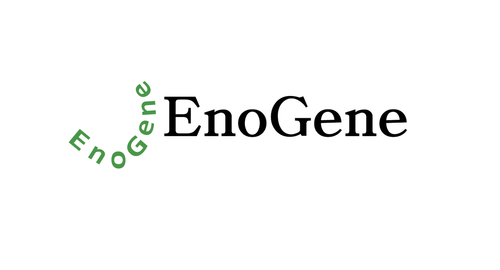Product Description
PCNA Antibody (C-term) [AMM02473G] | Leading Biology
Product Category: Monoclonal Antibodies
Host: Mouse
Species Reactivity: H, M, Rat
Specificity: This PCNA antibody is generated from mice immunized with a KLH conjugated synthetic peptide between 236-261 amino acids from the C-terminal region of human PCNA.
Cellular Localisation: Nucleus Note=Colocalizes with CREBBP, EP300 and POLD1 to sites of DNA damage (PubMed:24939902) . Forms nuclear foci representing sites of ongoing DNA replication and vary in morphology and number during S phase (PubMed:15543136) . Co-localizes with SMARCA5/SNF2H and BAZ1B/WSTF at replication foci during S phase (PubMed:15543136) . Together with APEX2, is redistributed in discrete nuclear foci in presence of oxidative DNA damaging agents.
Molecular Weight: 28769
Clone: Monoclonal
Gene Name: PCNA
Gene ID: 5111
Function: Auxiliary protein of DNA polymerase delta and is involved in the control of eukaryotic DNA replication by increasing the polymerase's processibility during elongation of the leading strand. Induces a robust stimulatory effect on the 3'-5' exonuclease and 3'- phosphodiesterase, but not apurinic-apyrimidinic (AP) endonuclease, APEX2 activities. Has to be loaded onto DNA in order to be able to stimulate APEX2. Plays a key role in DNA damage response (DDR) by being conveniently positioned at the replication fork to coordinate DNA replication with DNA repair and DNA damage tolerance pathways (PubMed:24939902) . Acts as a loading platform to recruit DDR proteins that allow completion of DNA replication after DNA damage and promote postreplication repair: Monoubiquitinated PCNA leads to recruitment of translesion (TLS) polymerases, while 'Lys-63'-linked polyubiquitination of PCNA is involved in error-free pathway and employs recombination mechanisms to synthesize across the lesion (PubMed:24695737) .
Summary: N/A
Form: Purified monoclonal antibody supplied in PBS with 0.09% (W/V) sodium azide. This antibody is purified through a protein G column, eluted with high and low pH buffers and neutralized immediately, followed by dialysis against PBS.
Storage: Store at +4°C short term. For long-term storage, aliquot and store at -20°C or below. Stable for 12 months at -20°C. Avoid repeated freeze-thaw cycles.
Application: IHC-P, WB
Dilution: IHC-P--1:100~500 IHC--1:2000 WB--1:2000
Synonyms: Proliferating cell nuclear antigen, PCNA, Cyclin, PCNA
 Euro
Euro
 USD
USD
 British Pound
British Pound
 NULL
NULL

![PCNA Antibody (C-term) [AMM02473G] PCNA Antibody (C-term) [AMM02473G]](https://cdn11.bigcommerce.com/s-452hpg8iuh/images/stencil/1280x1280/products/869218/1161285/logo__92149.1659788186__96704.1659865463.png?c=2)
![PCNA Antibody (C-term) [AMM02473G] PCNA Antibody (C-term) [AMM02473G]](https://cdn11.bigcommerce.com/s-452hpg8iuh/images/stencil/100x100/products/869218/1161285/logo__92149.1659788186__96704.1659865463.png?c=2)
![PCNA Antibody (C-term) [AMM02473G] PCNA Antibody (C-term) [AMM02473G]](https://cdn11.bigcommerce.com/s-452hpg8iuh/images/stencil/500x659/products/869218/1161285/logo__92149.1659788186__96704.1659865463.png?c=2)
![PCNA Antibody (C-term) [APR05084G] PCNA Antibody (C-term) [APR05084G]](https://cdn11.bigcommerce.com/s-452hpg8iuh/images/stencil/500x659/products/866801/1158868/logo__92149.1659788186__94460.1659863377.png?c=2)



![c-fos Antibody (C-term) [APR32301G] c-fos Antibody (C-term) [APR32301G]](https://cdn11.bigcommerce.com/s-452hpg8iuh/images/stencil/500x659/products/872546/1164613/logo__92149.1659788186__49531.1659868701.png?c=2)